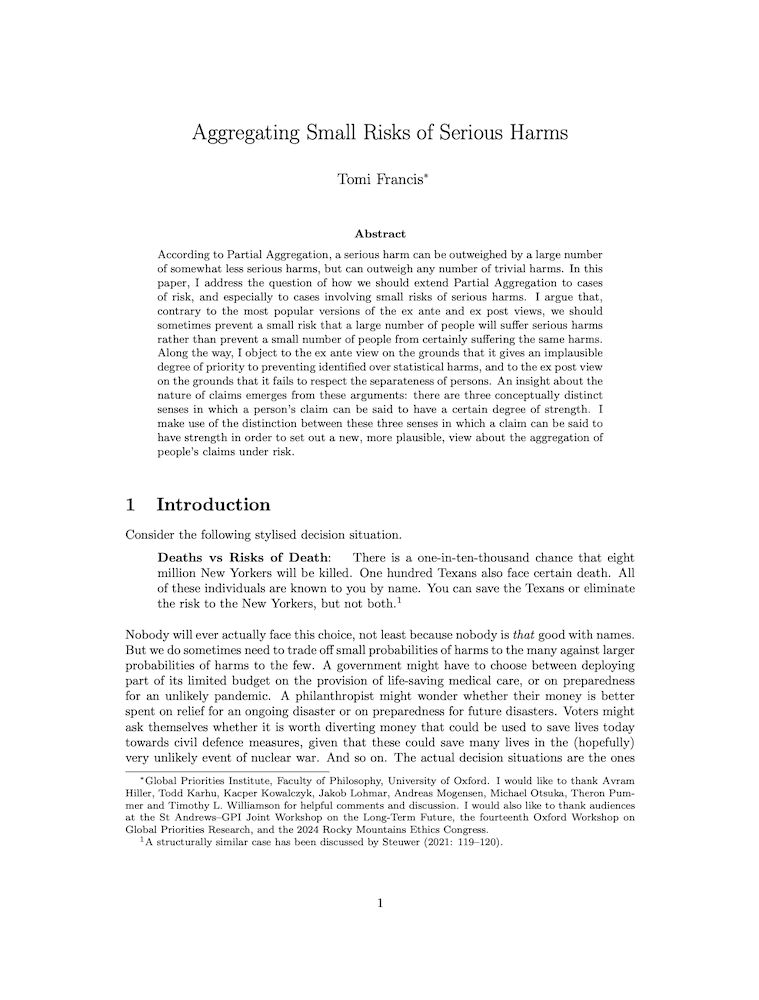Aggregating Small Risks of Serious Harms
Tomi Francis (Global Priorities Institute, University of Oxford)
GPI Working Paper No. 21-2024
According to Partial Aggregation, a serious harm can be outweighed by a large number of somewhat less serious harms, but can outweigh any number of trivial harms. In this paper, I address the question of how we should extend Partial Aggregation to cases of risk, and especially to cases involving small risks of serious harms. I argue that, contrary to the most popular versions of the ex ante and ex post views, we should sometimes prevent a small risk that a large number of people will suffer serious harms rather than prevent a small number of people from certainly suffering the same harms. Along the way, I object to the ex ante view on the grounds that it gives an implausible degree of priority to preventing identified over statistical harms, and to the ex post view on the grounds that it fails to respect the separateness of persons. An insight about the nature of claims emerges from these arguments: there are three conceptually distinct senses in which a person’s claim can be said to have a certain degree of strength. I make use of the distinction between these three senses in which a claim can be said to have strength in order to set out a new, more plausible, view about the aggregation of people’s claims under risk.
Other working papers
Welfare and felt duration – Andreas Mogensen (Global Priorities Institute, University of Oxford)
How should we understand the duration of a pleasant or unpleasant sensation, insofar as its duration modulates how good or bad the experience is overall? Given that we seem able to distinguish between subjective and objective duration and that how well or badly someone’s life goes is naturally thought of as something to be assessed from her own perspective, it seems intuitive that it is subjective duration that modulates how good or bad an experience is from the perspective of an individual’s welfare. …
The Conservation Multiplier – Bård Harstad (University of Oslo)
Every government that controls an exhaustible resource must decide whether to exploit it or to conserve and thereby let the subsequent government decide whether to exploit or conserve. This paper develops a positive theory of this situation and shows when a small change in parameter values has a multiplier effect on exploitation. The multiplier strengthens the influence of a lobby paying for exploitation, and of a donor compensating for conservation. …
Dispelling the Anthropic Shadow – Teruji Thomas (Global Priorities Institute, University of Oxford)
There are some possible events that we could not possibly discover in our past. We could not discover an omnicidal catastrophe, an event so destructive that it permanently wiped out life on Earth. Had such a catastrophe occurred, we wouldn’t be here to find out. This space of unobservable histories has been called the anthropic shadow. Several authors claim that the anthropic shadow leads to an ‘observation selection bias’, analogous to survivorship bias, when we use the historical record to estimate catastrophic risks. …

